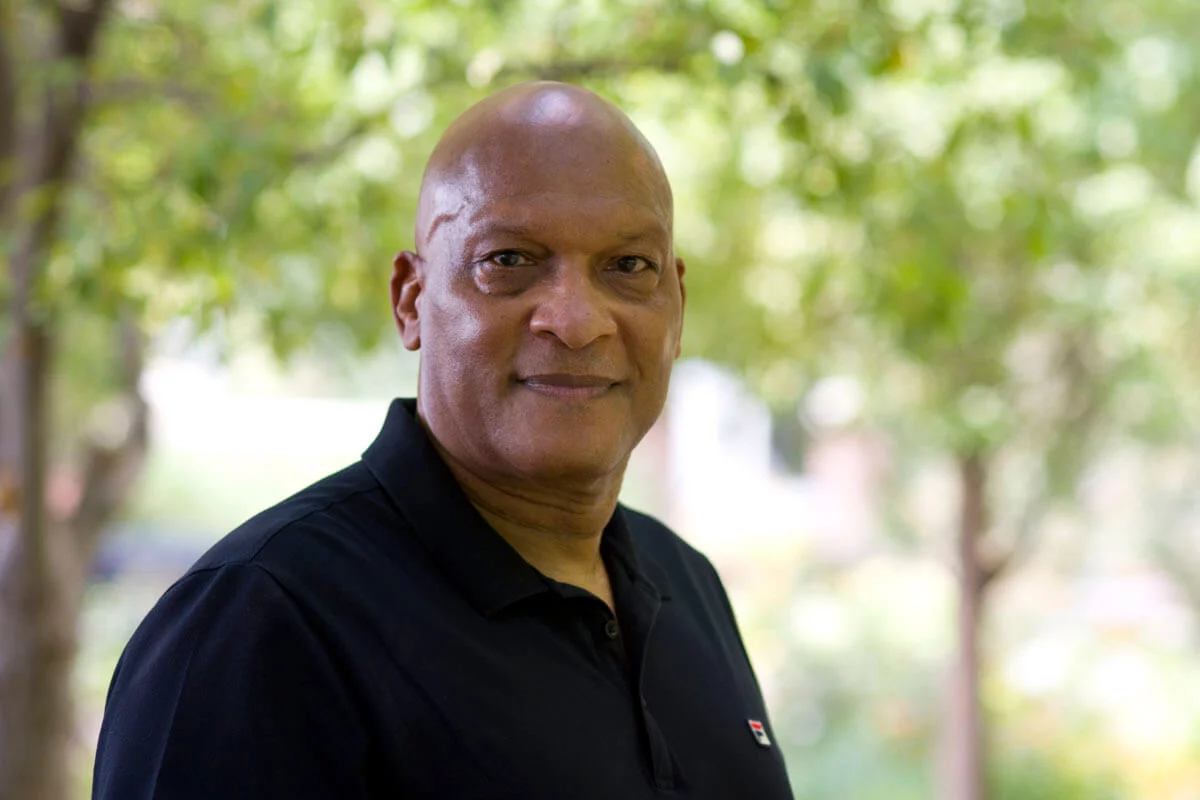Editor’s note: For the most up-to-date COVID-19 vaccine information, please click here.
Michael Rouse saw the news that COVID-19 vaccine trials like the one underway by Moderna were having trouble recruiting minorities.
The Denver retiree recognized the irony and the tragedy of that news. The irony: Black and Hispanic minorities have suffered, per capita, far worse than whites over the course of the pandemic. In Colorado, Black people are twice as likely to contract COVID-19 than whites. Blacks who contract the disease here are nearly twice as likely to die than whites who contract it. Colorado Hispanics are three times as likely to contract it as whites, with a mortality rate about 15% higher.

The tragedy: a lack of minority representation in coronavirus vaccine trials could well delay the ultimate approval of vaccines – an approval that will depend on demonstrating vaccine safety and effectiveness across races and ages. Subduing the pandemic will require widespread vaccination. Delaying vaccination could cost thousands of lives.
At the same time, Rouse, 65, understood why African Americans in particular may be wary of volunteering for a coronavirus vaccine trial: the infamous Tuskegee study and the immortal cells of Henrietta Lacks are two examples. But Rouse believes that medical ethics are different now.
“You have to have faith in our system – that it’s going to do the right thing,” he said through his surgical mask in the lobby of UCHealth University of Colorado Hospital’s Anschutz Inpatient Pavilion on Aug. 24. “The results will be beneficial to all of us.”
Recruiting minorities for COVID-19 vaccine trial
Rouse filled out a form on the National Institutes of Health website and, when he didn’t hear back, called them. The NIH connected him with Dr. Thomas Campbell’s team. Campbell, the University of Colorado School of Medicine virologist and infectious disease specialist leading the Moderna vaccine study at UCH, was happy to hear from Rouse.
“If we develop a vaccine for COVID-19, we need to make sure it’s safe for African Americans, and the only way to do that is to make sure we have African Americans represented in our vaccine study,” Campbell said.

University of Colorado is one of 89 hospitals and clinics participating in a national trial that will test the vaccine or placebo on 30,000 volunteers in total. (There will be a 50-50 split in this placebo-controlled, double-blind trial.) The first sites started enrolling on July 27; Rouse was among the UCHealth site’s first nine volunteers. They got their first shots on Thursday, Aug. 20. He and the others will receive their booster – again, either the experimental Moderna vaccine or a placebo – 28 days later.
UCHealth is ramping up enrollment to a pace of 100 to 125 people a week, and Campbell and his colleagues intend to bring in a more diverse group of volunteers than has been the case with many centers across the country.
“Our goal is to have between 30% and 40% of our total enrollment from these minority groups,” he said. That’s about what they make up in COVID-19 populations across the state.”
That’s despite those populations comprising just a quarter of the Colorado’s population.
To recruit minorities and boost participation in the COVID-19 trial, the team is working a couple of angles. First, they’re reaching out to Black, Hispanic and Native American patients via the UCHealth Epic electronic medical record’s MyHealthConnection. Second, CU School of Medicine and UCHealth infectious-disease specialist Dr. Jose Castillo-Mancilla is working with the Mexican and other consulates in Denver as well as community groups.
‘Science is the solution’
Rouse is an enthusiastic participant in the study, and while the idea of potentially being protected from COVID-19 may be appealing, it isn’t what drove him to participate. First of all, he says, there was a 50% chance he would receive a placebo.
The prep included a blood draw, a thorough walkthrough of the 22-page contract, and an introduction to the smartphone app with which Rouse was to track possible side effects.

While he’s not sure what he received the afternoon of Aug. 20, he did feel some body aches a few hours after the shot. As someone whose thrice-weekly workouts include 50 to 100 chin-ups, he’s well familiar with muscle aches. In fact, he described them as what he sometimes felt like after a heavy workout. A bit of nausea followed, but by the next morning, the body aches and nausea were gone. Minor soreness near the injection site in his shoulder persisted into the weekend.
Even if he got the actual vaccine, Rouse isn’t taking chances. He and wife Phyllis are both old enough to be at higher risk for coronavirus complications, so they’re continuing to be vigilant about hand-washing, mask-wearing, and avoiding crowded indoor spaces.
He hopes more minorities join him in the study.
“I told my family: throughout history, if it were not for people volunteering to do something like this, we wouldn’t have the medications we have now,” Rouse said. “Science is the solution – not fear.”
For more information on joining the Moderna COVID-19 trial at UCHealth, email [email protected].
For information on COVID-19 testing through UCHealth, please click here. To find community testing locations throughout Colorado, please click here.
